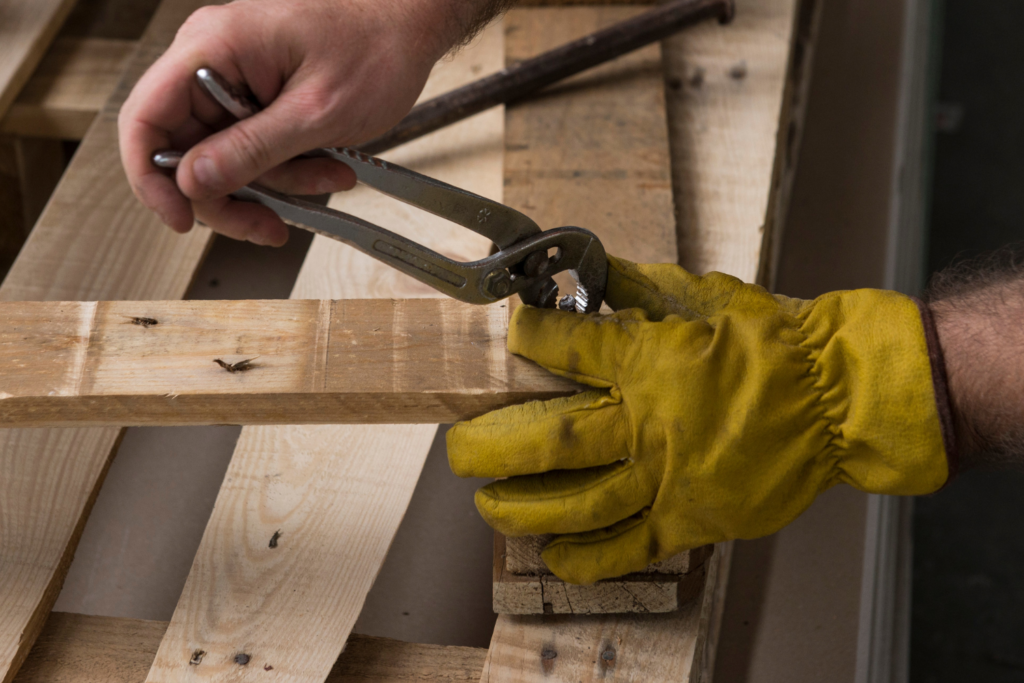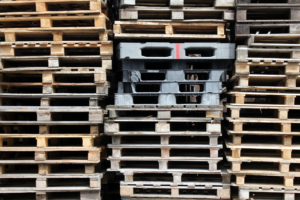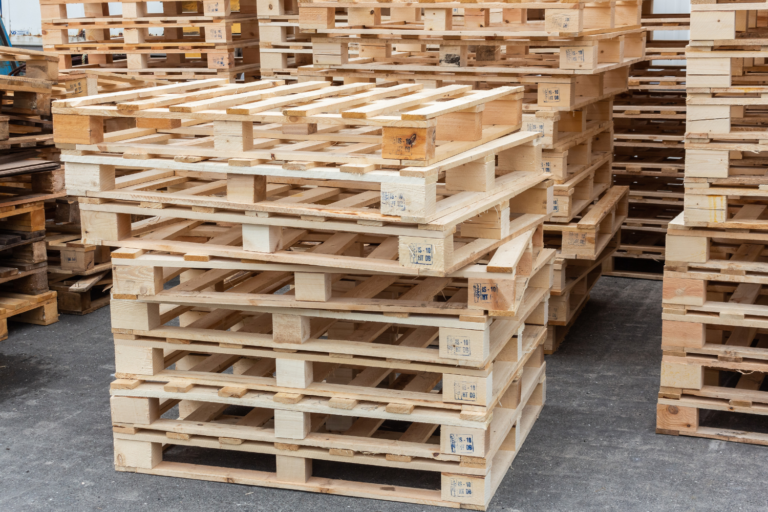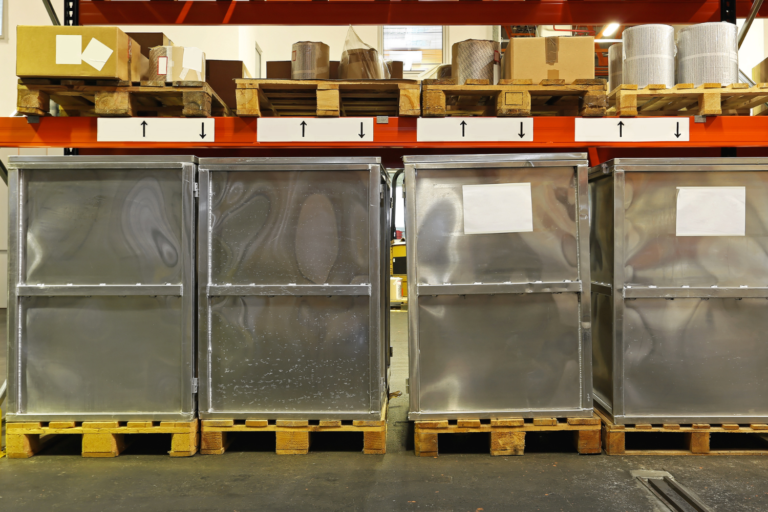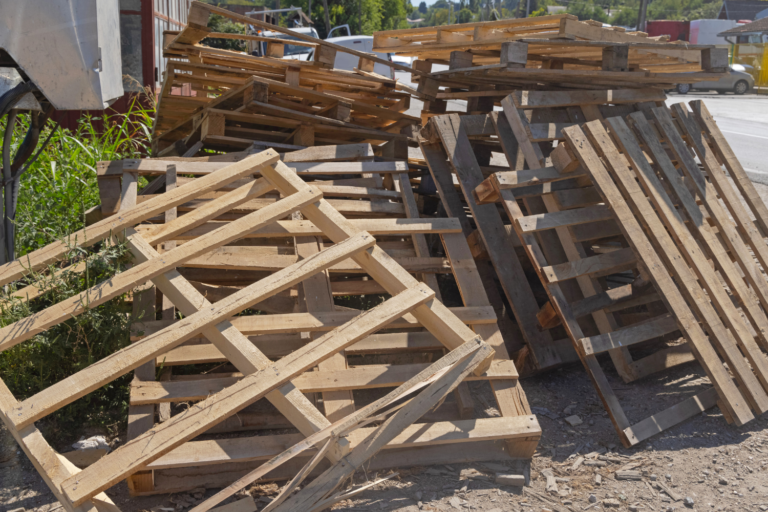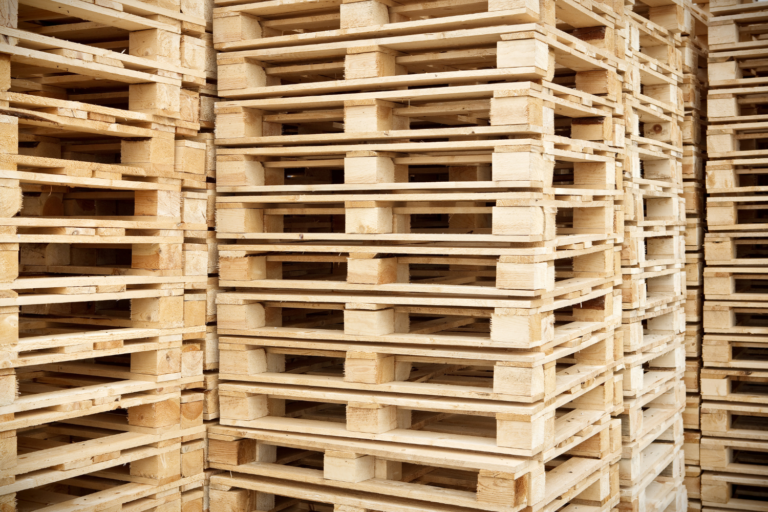Among the key considerations in pallet selection is the choice between hardwood and softwood, two primary types of wood with distinct characteristics and applications.
Choosing hardwood or softwood pallets involves evaluating their respective advantages, limitations, and implications on cost, durability, and sustainability.
Learn about their differences below.
Hardwood or Softwood Pallets: Which Is Better?
Both hardwood and softwood pallets have distinct qualities that make them better suited for different applications.
Hardwood pallets are known for their superior strength and durability. Their dense cellular structure allows them to bear substantial weight without cracking or splintering.
Additionally, their resistance to warping and shrinking makes them more stable over time, even in environments with fluctuating humidity and temperature levels.
However, the higher density of hardwood also translates to increased weight, which can impact handling ease and transportation costs.
On the other hand, softwood pallets offer distinct advantages in terms of affordability and versatility.
The faster growth rate of softwood species, such as pine and spruce, ensures a more abundant and cost-effective supply, making these pallets budget-friendly.
They are lighter than hardwood pallets, which can lead to improved efficiency in manual handling and reduced freight costs in logistics operations.
They are also easier to modify and repair, providing flexibility for businesses that need custom pallet solutions or quick fixes in dynamic supply chains.
However, they may not withstand heavy or rough handling as effectively as hardwood pallets.
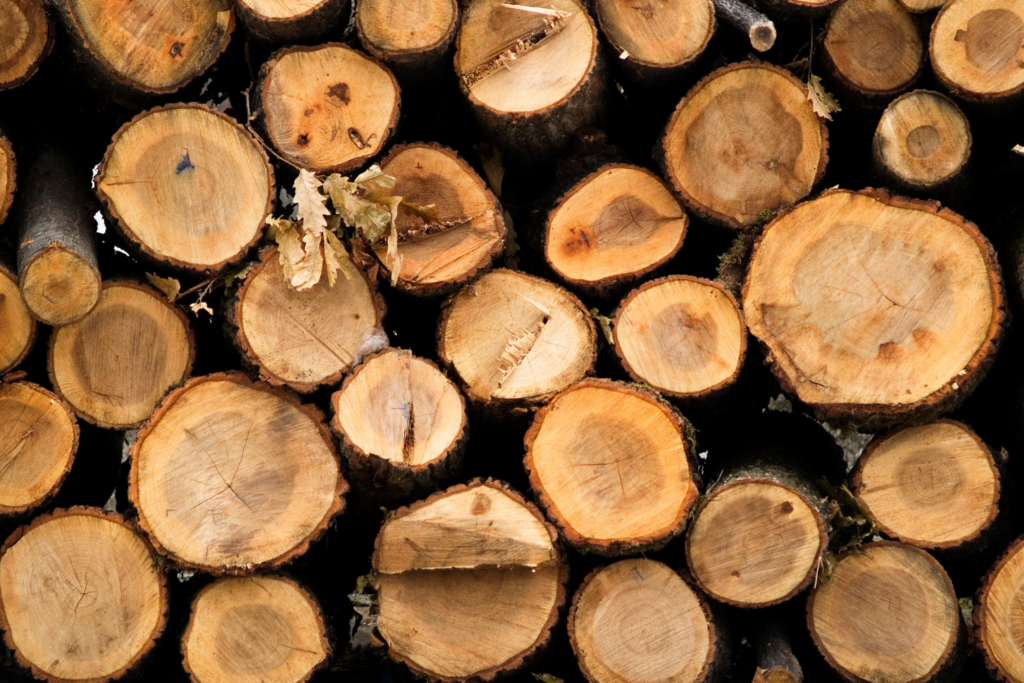
4 Reasons Why You May Prefer Softwood Pallets
Softwood pallets are crafted from fast-growing trees such as pine, spruce, and fir, which offer a lighter and more abundant material alternative.
Its relatively rapid growth rate makes it an economically viable resource, allowing manufacturers to produce pallets at lower costs without sacrificing quality in many cases.
Below are reasons why you may prefer softwood pallets.
1. Softwood Trees Grow Faster Than Hardwood Trees
Softwood species, like pine and spruce, grow relatively fast, reaching maturity in 20 to 30 years, while hardwoods like oak can take up to 100 years to fully mature.
This faster growth rate means that softwoods are more readily available and sustainable, providing a steady supply of wood for pallet production.
2. Softwood Pallets Are More Affordable
The abundance of softwood resources directly translates into lower raw material costs, making these pallets a budget-friendly option.
If you require large quantities of pallets for shipping and storage, you can save significantly on costs by opting for softwood.
Sectors with lighter loads or short-term shipping requirements find softwood pallets to be an economically viable alternative.
3. Softwood Pallets Are Lighter in Weight
Softwood pallets are lighter than hardwood pallets, so they are easier to handle and transport.
If you frequently move goods in and out of your facilities or rely on manual handling, their lighter weight can lead to significant operational benefits.
It also helps in reducing overall freight weight, which can contribute to better fuel efficiency and cost savings in transportation.
4. Softwood Is Simpler to Repair and Modify
Softwood is simpler to repair and modify, which adds to its appeal. It is easier to nail, saw, and drill into, allowing quick fixes or adjustments on-site.
When pallets get damaged during transit or handling, minor repairs can be performed with basic tools and minimal downtime.
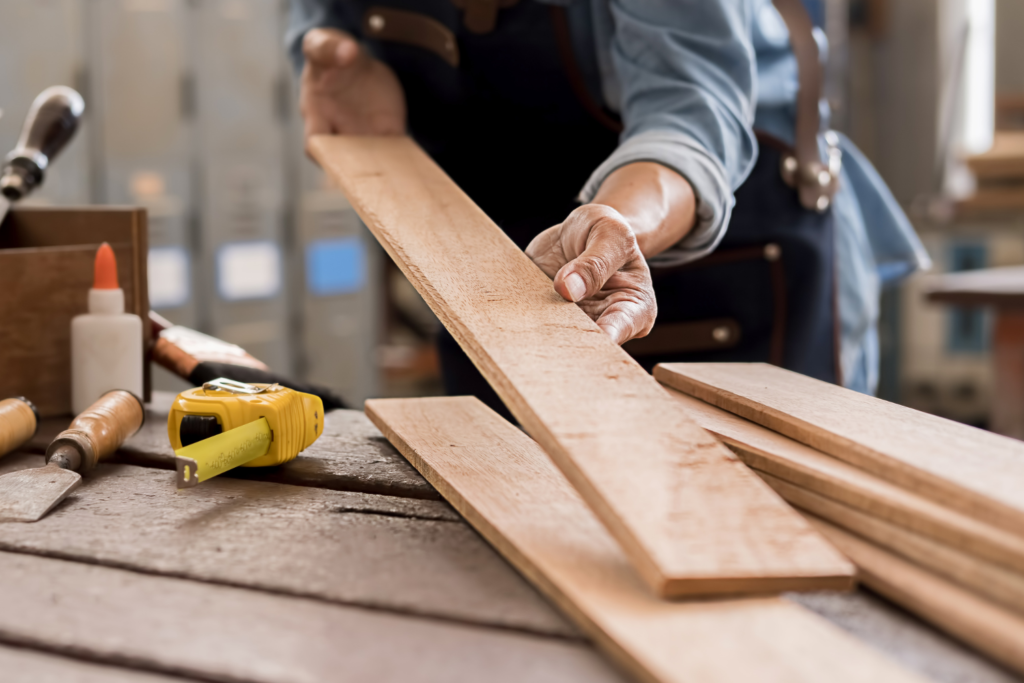
3 Reasons Why You May Prefer Hardwood Pallets
Hardwood pallets are typically made from dense, slow-growing tree species like oak, maple, and hickory.
They offer the durability needed for transporting heavy, bulky goods, providing a reliable solution that minimizes the risk of damage during shipping and handling.
Here are reasons why you may prefer hardwood pallets.
1. Hardwood Provides Superior Strength and Durability
Hardwood species have a denser cellular structure than softwood, giving them a higher load-bearing capacity and the ability to withstand greater stress.
This increased strength makes them ideal for transporting heavy and bulky goods, where the risk of damage or collapse must be minimized.
2. Hardwood Pallets Are Less Likely to Warp or Shrink Over Time
The dense fibers in hardwood make these pallets less susceptible to changes in moisture and temperature, which can lead to deformation in softer woods.
This stability is particularly valuable in environments with fluctuating humidity levels, such as outdoor storage or facilities with climate control challenges.
3. Hardwood Pallets Have a Longer Lifespan
While hardwood pallets may come with a higher initial cost compared to softwood alternatives, their durability and resistance to wear and tear often result in lower long-term expenses.
These pallets can endure multiple cycles of loading, unloading, and transportation without the frequent repairs or replacements that are more common with lighter materials.
Over time, the investment pays off as you experience fewer disruptions and replacement costs.
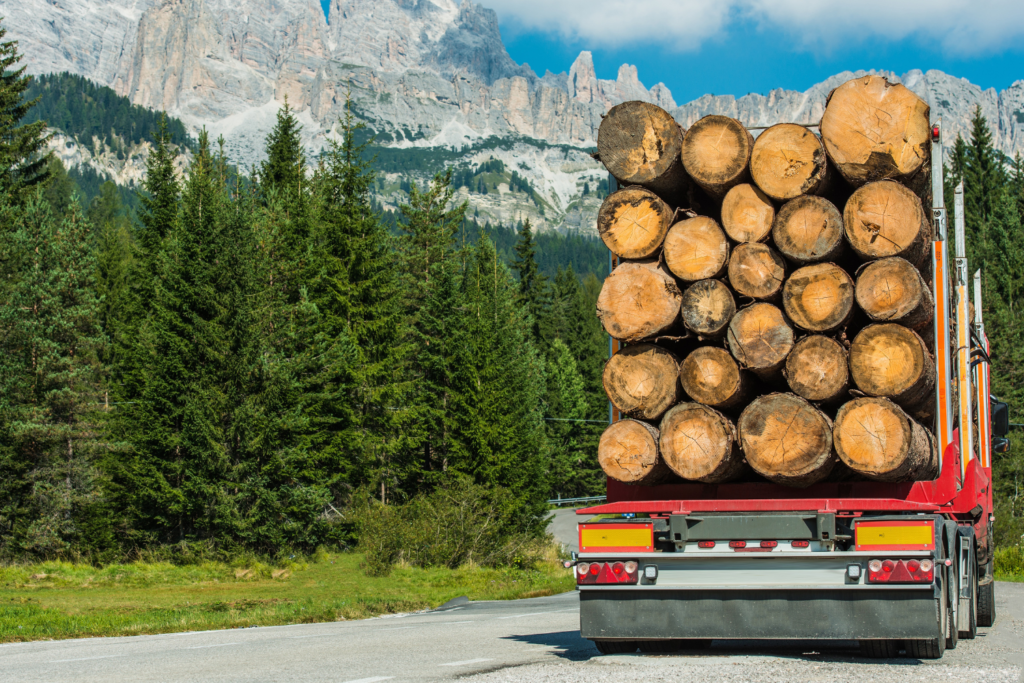
Conclusion
Should you choose hardwood or softwood pallets? It depends on your needs and priorities.
The renewable nature of softwood, thanks to faster regrowth, presents a sustainability advantage, especially when sourced from responsibly managed forests.
However, the longer lifespan and lower replacement frequency of hardwood pallets can contribute to reduced waste and resource consumption.
If you need wooden pallets, check out our pallet products here.
Chesapeake Pallets has been helping companies across the United States level up their logistics, one pallet at a time.
For inquiries, email info@chesapeakepallets.com or request a quote below!

